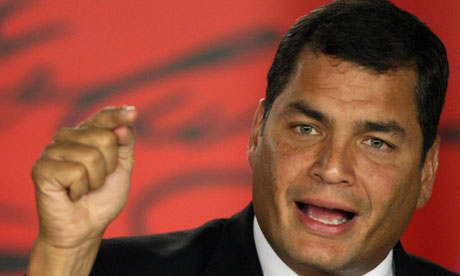 In the aftermath of a failed coup attempt on September 30, left-wing Ecuadorian President Rafael Correa has vowed to deepen his “citizen’s revolution” in the small Andean country.
In the aftermath of a failed coup attempt on September 30, left-wing Ecuadorian President Rafael Correa has vowed to deepen his “citizen’s revolution” in the small Andean country.
After the coup attempt by sections of the police and armed forces failed amid pro-government protests, Correa’s approval rate has surged as high as 75% in some polls.
In response, Correa, stating his government had not done enough to implement its pro-people program and would radicalise its project to build a “socialism of the 21st century”.
This call was echoed by Ecuador’s National Secretary of Planning and Development Rene Ramirez, who said after the coup: “We want to have a much more progressive government, more turned to the left.”
Correa, addressing the Fifth Congress of the Latin American Coalition of Rural Organisations in Quito on October 13, said Ecuador needed an “agrarian revolution” rather than small reforms in land ownership.
Addressing hundreds of peasant leaders from across Latin America, Correa said his government would either directly expropriate unused and unproductive agricultural land, or raise taxes on those properties to force its owners to sell.
Other measures proposed to deepen agricultural reform include allotting state-owned fallow land to poor farmers and a program of selective import substitution and incentives to increase local production.

